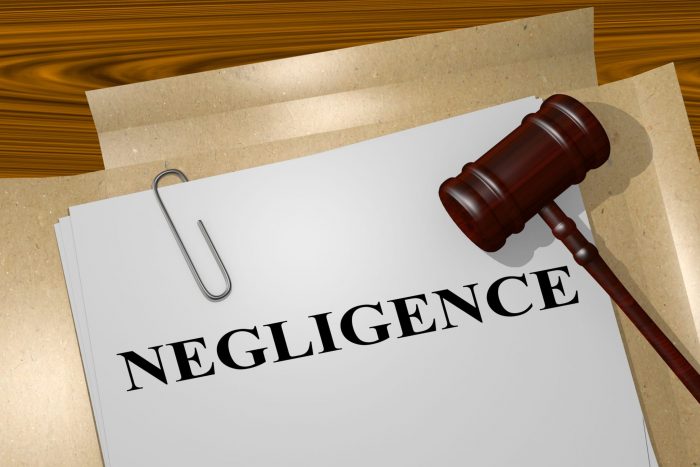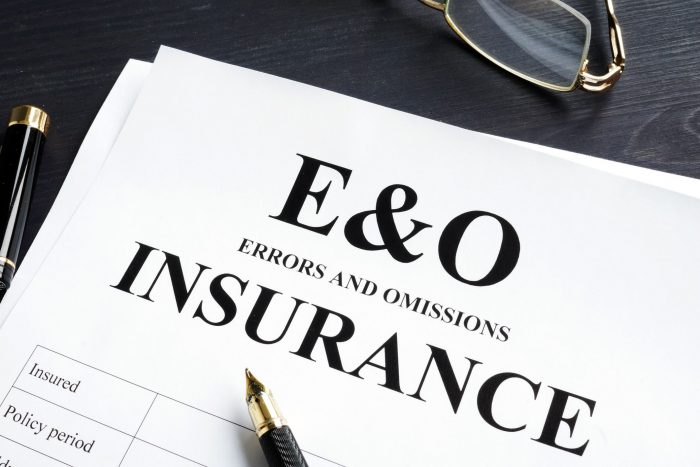
Running a business comes with inevitable risks. Recognizing and getting protection against these risks is a recommended practice. One example of a risk is getting sued for professional negligence. Committing errors related to the business, or failing to do what needs to be done may be considered professional negligence. As the primary means of protection, you can get errors and omissions insurance for your business, for which you can learn more by visiting this site. But what does negligence mean for business owners and is it different from ordinary negligence?
What is business negligence?

Errors and omissions is a more technical term used for negligence. Ordinary negligence applies to any instance when a person becomes liable for injury by failing to exercise proper care. For businesses, it means any enterprise offering professional services needs to abide by certain rules and standards. When a business fails to meet these standards and causes harm or injury to a client, it may become liable for negligence.
This type of risk is well associated with professionals such as doctors and lawyers. But, remember that all businesses can be sued for negligence as long as a client or customer suffers some type of loss or injury caused by an error or omission. Every proprietor needs to exercise care to protect the public and their employees from any foreseeable danger. What are some examples?
- If you run a retail store, there are many ways a customer could get injured. For example, they could slip or fall due to a lack of warning on wet surfaces. If there are spilled products on the floor, the store owner needs to prevent customers from walking and slipping on them.
- Improper electric installations could lead to accidents inside an office. It’s the business owner’s duty to inspect and ensure that building utilities are up to code.
- Falling objects, slippery driveways, and lack of warning when there’s ongoing construction are other examples.
Remember that all these are preventable, should the business exercise care. Negligence comes into play because while there’s no intent to injure, the business failed in some way to perform its duty or responsibility.
How do you protect your business from a negligence lawsuit?

The reality is, you can’t eliminate the risk of business negligence. That’s why every business needs insurance to safeguard from the consequences of a lawsuit. There are different types of insurance coverage that may protect the business from a liability claim:
- E&O insurance. This insurance is also commonly known as professional liability insurance. It generally covers mistakes and oversights committed while performing professional services.
- Cyber liability insurance. For businesses that rely on the internet, this type of insurance is essential. Depending on the coverage, the insurance should cover claims from clients suing the business for failure to prevent a cyber-attack.
- General liability. In addition to negligence, every business also needs protection against common liability-related lawsuits. General liability insurance covers claims for customer injury, damage to property, and defamation among others. It is integral to promote OSHA compliance at an individual level. Consider offering OSHA 10 online training courses to your employees via 360 Training to outfit them with the skills they need to promote workplace safety at all times. Click here for more information. It is integral to promote OSHA compliance at an individual level.
Every business should acknowledge that lawsuits will happen for a variety of reasons. Insurance is the only means to safeguard the business from the financial consequences of these claims.
Why are errors and omissions insurance the best safeguard for business?

Now that you know why insurance is vital for every business, let’s take a closer look at E&O insurance. This policy is a specific type of liability insurance. It provides comprehensive coverage against the cost of claims related to professional negligence. Unlike general liability, E&O insurance is commonly associated with businesses that provide services. Also, individuals who practice a profession such as a lawyer and financial consultant needs this policy to safeguard their trade.
Even when you perform your job with the utmost care, there are instances when a client isn’t satisfied. It’s not uncommon for unhappy clients to file a claim for professional negligence. Even if the litigation ends in your favor, the costs and legal fees can be extensive. This is where your insurance comes in. The primary purpose of having E&O insurance is to have coverage for these fees.
What does E&O insurance cover?

When choosing a policy, one of the main priorities is knowing what it does and doesn’t cover. This is why looking for the most affordable policy isn’t recommended. You need to compare policies to ensure that you get the right coverage for your needs. With that in mind, here are key areas to pay attention to when comparing policies:
- Policy benefits. In general, you need to go over what you’ll get when you pay for the plan. As earlier mentions, you’ll want to consider getting a policy that covers legal fees.
Deductible. Like other types of insurance, an E&O policy will also have a deductible amount. Not until this amount is satisfied, will the policy start paying out. Generally, a higher deductible means a lower premium. - Limit of liability. Most policies will designate a dollar amount which is the maximum payout you’ll get for every incident. You need to account for how much you feel is most reasonable. Although most policies, regardless of the provider, have more or less the same limit.
- Coverage for prior acts. Continuous coverage is necessary to ensure that the new policy can pick up claims related to prior acts. This is an important consideration when shopping around for a new policy.
- Coverage for legal fees and court expenses. Defending yourself when a client files a lawsuit is expensive. Even if the claim is small, the fees can still rack up and hurt you financially. Businesses offering professional services usually have small profit margins. To protect your reputation and trade, the insurance policy should cover these fees.
- Efficient policy renewal process. You don’t want to have gaps in your insurance coverage. As much as possible, look for a policy with an automatic renewal option. If not, then at least look for one with the most efficient and simple process.
- Online policy management. Most insurance providers have an online portal for their policyholders. This is helpful for many reasons. Not only is it more convenient, but you also get to monitor and manage the policy remotely.

Depending on the insurance provider, you can get extras on top of the basic benefits package. More than anything else, you need to consider the provider’s stability. Yes, add-ons may attract you to consider a plan. But make sure that the policy has a solid foundation and comprehensive coverage based on your business needs.








